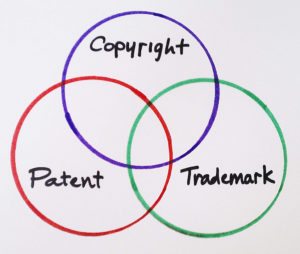How to maintain control of your China operations is a question faceing many companies looking to do business in China. Recently, I have been having a lot of conversations with business owners, with some companies looking to establish a foothold in China for the first time, and others pushing deeper into the Chinese consumer market. Some of these clients are service-based companies; others are selling goods. During the past few weeks, I have been working closely with companies based in Japan, Singapore, Canada, and the U.S. that are looking at the China market.
1. The Questions We Get
Thanks to China’s increasingly punishing regulatory hammer, the questions we are getting from these companies center around their ability to maintain control of their China operations and the liability created by China operations for the parent company at home. Businesses looking to go into China typically want to know the following:
- How much can they trust their Chinese partners?
- How much should they trust their Chinese partners?
- How can they ensure their Chinese partners hold up their end of the business relationship?
- What should the foreign company going into China be aware of?
- What is the best way to remit profits back home?
- Is it better to operate in strict compliance with Chinese laws and regulations or is it possible to operate in material compliance only?
- What are the worst possible repercussions for totally ignoring Chinese laws and regulations?
Our advice depends on several key components of their business plans:
- What is your business risk appetite?
- What is the risk appetite of your owners and investors?
- How much of your revenue is derived from China?
- What type of industry are you in?
- Do you have good (i.e. reliable, trustworthy) business partners in China?
- How long have you been working with those business partners?
- Have you had trouble repatriating profits from China or getting paid by your business partners?
- Do you have good (i.e. reliable, trustworthy) employees in China?
- Do you have a trustworthy due diligence team in China?
Ultimately, all these companies ask us if they must set up an entity in China. The answer is usually no. Often, clients do not want to set up formal operations in China if they can avoid it due to the costs and ongoing regulatory burdens. For many reasons, we have been advising clients to establish and maintain as light a footprint in China as possible. We advise them to enter into arm’s length business relationships if possible, and to ensure that those relationships are clear, secure, and can be undone and enforced if the other side does not uphold its part of the relationship.
The ability to maintain control of their China operations almost always influences our clients’ decisions on how to proceed go forward in China. If our client needs to formally establish operations in China, we discuss the best way to do that, e.g. by setting up an entity in a special economic zone, most of which are in the major coastal Chinese cities.
2. WFOES — Good for Maintaining Control of Your China Operations, But. . . .
We used to tell our clients that wholly foreign-owned enterprises (WFOEs) were the best way to establish and retain control of their China operations. For many years, the Chinese government adopted a hands-off regulatory approach to foreign-owned companies that brought jobs and technology to China. A WFOE is still the best (and often only) way to establish and retain control of your China operations, but doing so exposes your company and China-based personnel to significant scrutiny.
3. Entity JVs — Not so Good for Maintaining Control of Your China Operations, But. . . .
Entity joint ventures (JVs) have always been and continue to be a tightrope walk, especially where the JV partner nominates and maintains the key personnel with the Chinese company, including the manager who has control of the company’s seal or chop, which provides legal authority for myriad activities.
JVs may be required for foreign companies in certain Chinese industries identified as “restricted” on the negative list, over which the Chinese government wants additional oversight. Other industries that may not appear on the restricted list could still require a foreign company to enter into an entity JV with a Chinese partner. These industries can be reasonably identified because they have the potential to run into Chinese state sovereignty issues, which is the catchall provision in every Chinese law that can be used to intimidate problematic foreign organizations (like the American Chamber of Commerce in Chengdu a few months ago).
Contractual JVs (Including Licensing Relationships) — Better Than You Might Think for Controlling Your China Operations
Contractual JVs are really contracts that a foreign company enters into with a Chinese company. These take the form of almost any business relationship that is not an entity JV. I include licensing relationships in this category because the licensing company generally will want the maximum amount of oversight of its Chinese partner to ensure compliance and the integrity of the licensed materials.
Companies looking to do business in China should consider the questions above in deciding what the China market means to them and what they are willing to risk. There is no way to entirely avoid China regulatory risk, but depending on your product or service and your company’s and owners’ risk appetites, there is always a way forward. The question of how to maintain control of your China operations is just one of many questions to ask.

























